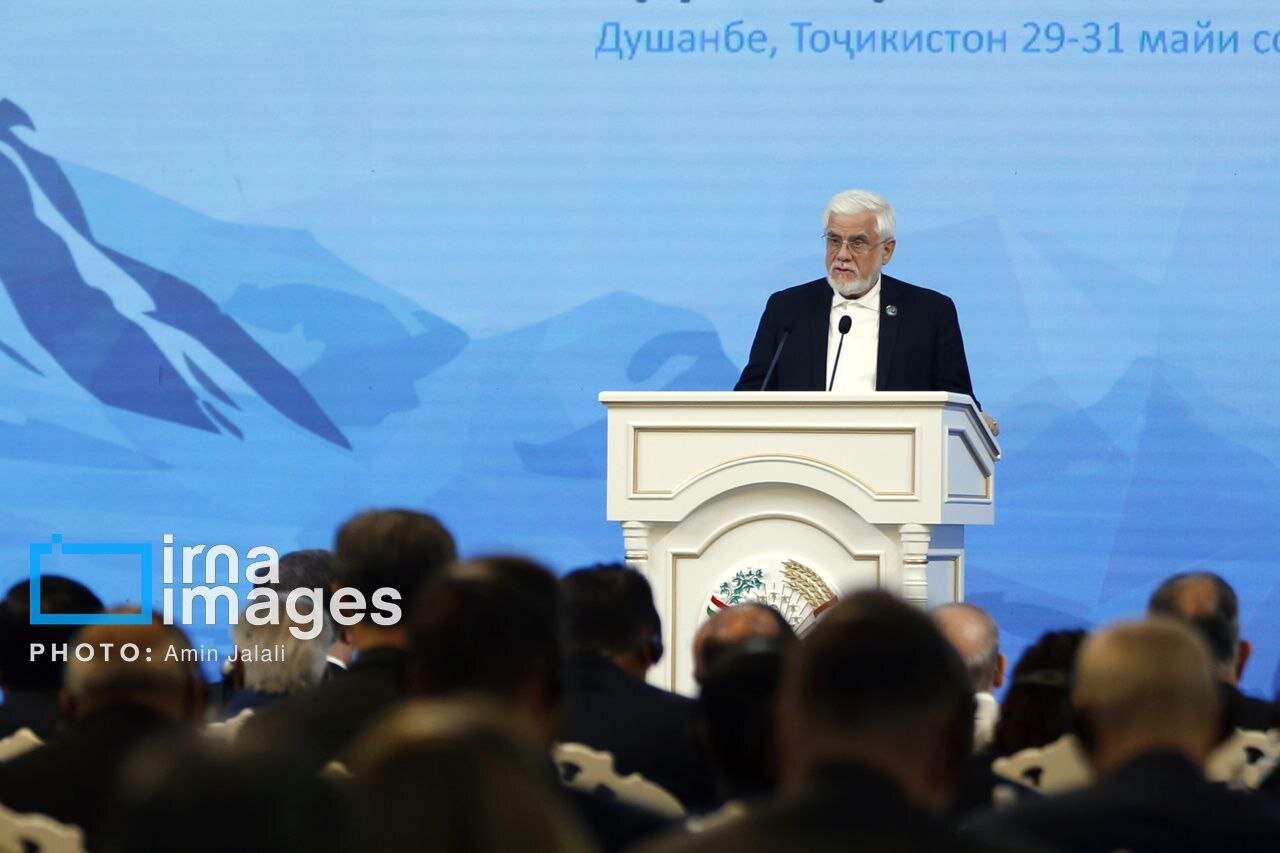World needs innovative, equitable solutions to ensure water security, Iran suggests

TEHRAN –The world needs innovative and equitable solutions to ensure water security for all and prevent social tensions, forced migration, and livelihood instability by turning challenges into opportunities through fostering global ties, First Vice-President Mohammad-Reza Aref has said.
“Strengthening international collaborations, we can turn the challenge into an opportunity and build a future where sustainable water management supports thriving societies, sustainable food systems, and healthy ecosystems around the world,” IRNA quoted Aref as saying.
The official made the remarks while addressing the High-Level International Conference on Glaciers’ Preservation being held from May 29 to 31 in Dushanbe, Republic of Tajikistan, which underlines the vital role of glaciers in maintaining global ecological balance and addressing water-related challenges.
Highlighting climate change, biodiversity loss, and environmental pollution as the main triple challenges the world is facing, the official said, “By affecting environmental procedures, these challenges impact human health and the environment in many different ways.”
Glaciers, as hidden reservoirs of fresh water, are a valuable treasure for Earth’s inhabitants, and their protection will ensure water security, he noted.
Rising global temperatures are threatening these vital freshwater reservoirs. Their protection requires comprehensive diplomatic, environmental, and social measures, as their melting will lead to many concerns over floods, soil erosion, and destruction of economic infrastructure, he highlighted.
Referring to Iran’s dry climatic conditions, Aref noted that “Iran's water resources are highly dependent on water from snowmelt and natural glaciers. As one of the oldest civilizations in the world, over thousands of years, Iran has developed different strategies for water management, particularly during times of water scarcity. These include the construction of qanats or underground channels for water transport without evaporation, irrigation networks, and water storage.”
The official went on to say that combining indigenous knowledge with advanced technologies, the country is benefiting from both traditional and modern water management practices.
In addition to preserving historical structures as cultural heritage and usable infrastructure, Iran has implemented extensive development projects such as dam construction, modern irrigation systems with advanced technologies, recirculation technology, and desalination plants.
The vice president expressed optimism that the high level conference results in the expansion of bilateral and multilateral cooperation, the exchange of knowledge and expertise among nations, as well as the enhancement of practical measures such as the implementation of effective programs to enhance resilience against drought and floods, and empower local communities against melting glaciers and shrinking water resources.
MT/MG
Leave a Comment